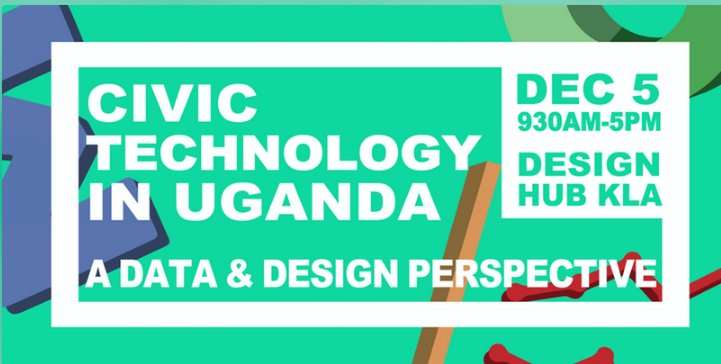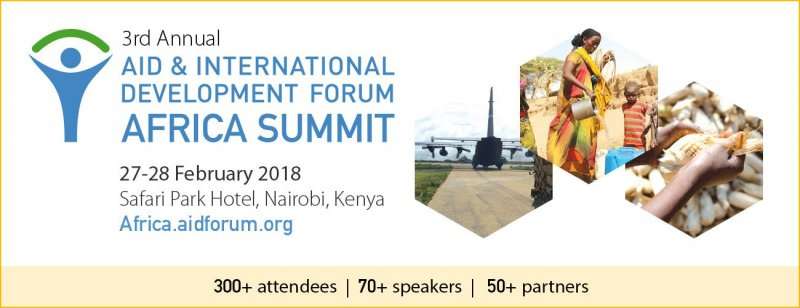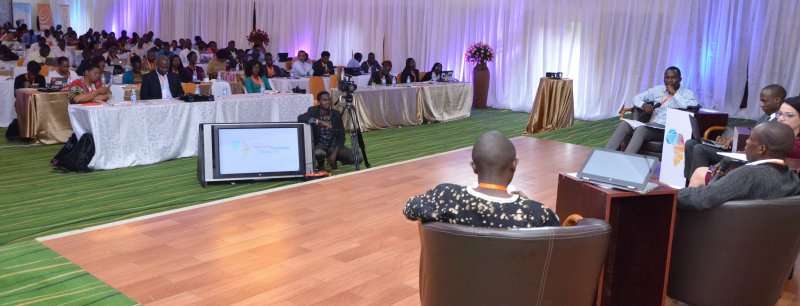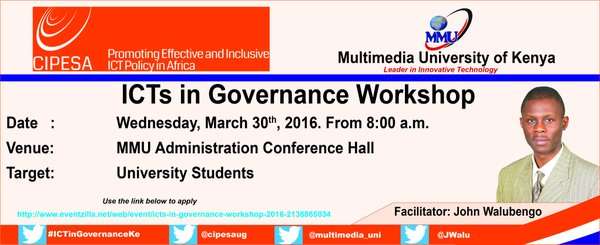Workshop |
The Collaboration on International ICT Policy for Eastern and Southern Africa (CIPESA) in partnership with Outbox, a Kampala based tech hub are hosting a workshop aimed at building digital rights knowledge as well as the digital security and capacity of human rights defenders, media, vulnerable women organisations in Uganda.
Despite the importance of digital security and privacy for human rights defenders in carrying out their work, the development of effective digital security strategies still present a numerous challenge. Human rights defenders have to contend with an ever shifting landscape of technologies and threats, limited understanding of behavioral factors and the lack of customisation for a number of the tools, among others.
The one day workshop will be hosted at Outbox on the November 29, 2017 and is aimed at targeting human rights defenders, software developers, media and other civil society actors. Use this link to register.
Civic Technology in Uganda: A Data & Design Perspective
Workshop |
Are you a techie that’s looking to harness technology and design for the public good? Are you part of a government department or civil society organization interested in how data can improve public service delivery? Want to know what “service design” is all about? Then, this is the event for you!
We have partnered with Pollicy, a civic technology organisation and are excited to bring you the latest in civic technology in Uganda, with a focus on data and design. As issues of data ownership, digital security, censorship become more pertinent in our society, so does the need to appropriately harness the benefits of big data.
We will walk you through how data can be used to revolutionize how citizens and governments interact for mutual benefit. The agenda will include a panel discussion on the ownership of citizen data, ethics, privacy and digital security for civic technology organisations. There will also be lightening talks on the harnessing of big data to improve service delivery and a workshop on service design.
Service design is the activity of planning and organizing an organizations resources (people, props, and processes) in order to (1) directly improve the citizen’s experience, and (2) indirectly, the citizen’s experience. For this session, Design with Borders will introduce participants to the concept of service design and how to incorporate elements of service design into their work.
For more information, email [email protected] or visit our blog at medium.com/pollicy
Aid And Development Summit 2018, Set To Take Place in Nairobi
Announcement | The Collaboration on Internetaional ICT Policy for East and Southern Africa (CIPESA) is proud to be a media partner of the upcoming 3rd annual Aid & Development Africa Summit set to take place on February 27-28, 2018 at Safari Park Hotel in Nairobi, Kenya.
The summit will once again unite 300+ humanitarian and development leaders, decision makers and advisors committed to achieving the Sustainable Development Goals (SDGs) in the region. It presents an opportunity to explore best practice, policy and project updates, innovation and partnerships in ICT, data and mobile solutions for humanitarian and development programmes.
Participants will gain first hand insights from development banks, donors and government agencies into their financing priorities and funding guidelines as well as benefit from networking opportunities.
The agenda will explore innovations and best practice in emergency communication, connectivity and social networks and discuss the impact of mobile devices on development work. Expert speakers including Kasirim Nwuke, Chief, New Technologies and Innovation, United Nations Economic Commission for Africa (UNECA), Olawale Maiyegun, Director, Department of Social Affairs, African Union Commission and Mamadou Biteye, Managing Director, The Rockefeller Foundation will share insights and ways to drive sustainable innovation and support community resilience in East Africa.
Session Focus: The Tech Revolution and a look into the future:
The world has an ambitious goal to end extreme poverty by 2030. But, without good poverty data, it is impossible to know whether we are making progress, or whether programs and policies are reaching those who are the most in need. Discussion points include:
- Overall impact on the Tech Revolution on Development and Humanitarian fronts in Africa
- Emerging trends and how they can benefit data and measurement of poverty eradication trends
- Is using technology to collect data a new solution to an old problem?
The Summit agenda includes keynote presentations, interactive sessions, themed roundtables, speaker panels, Innovator of the Year Award and an evening drinks reception to engage with decision makers and key stakeholders in Africa’s aid and development sectors.
The Aid & Development Africa Summit advocates for cross-sector approach through inclusive, effective collaboration and coordination between national and international NGOs, government and UN agencies, Red Cross, donors, investors, development banks and the private sector.
“The summit was well organised, it was beneficial and provided me with knowledge and insight on issues ranging from ICT, agriculture health, disaster preparedness, irrigation etc, all which are part of my job in the office” – Asanterabi C. Sangenoi, Prime Minister’s Office Tanzania
Save the date and reserve your place here to be part of the most influential aid and development conference in Africa.
For more information about Aid & Development Africa Summit, please visit http://www.africa.aidforum.org or get in touch with Alina O’Keeffe, Head of Marketing, Aid & international Development Forum (AIDF) at [email protected]
Forum on Internet Freedom in Africa (FIFAfrica) Set to Kick Off in South Africa
Press Statement |
On September 27–29, 2017, the Forum on Internet Freedom in Africa 2017 (FIFAfrica17) will be held in Johannesburg, South Africa. The landmark event convenes various stakeholders from the internet governance and online rights arenas in Africa and beyond to deliberate on gaps, concerns and opportunities for advancing privacy, access to information, free expression, non-discrimination and the free flow of information online.
This year’s convening that is organised by the Collaboration for International ICT Policy in East and Southern Africa (CIPESA) and the Association for Progressive Communications (APC) brings together up to 250 participants from more than 35 countries. This is the first time that FIFAfrica is hosted outside of Uganda where it has been held since its inception in 2014. The Forum’s expanding footprint mirrors the growing popularity of the event which launched with 80 participants.
More than 40 speakers representing a diversity of organisations have been lined up for FIFAfrica17, including from the Berkman Klein Center for Internet & Society at Harvard University, Nigerian social enterprise Paradigm Initiative, Zambian tech accelerator BongoHive, Jamii Media, a Tanzanian company that runs one of the most popular online discussion boards in in East and Central Africa, media rights organisation International Media Support, the University of the Witswatersrand and University of Oxford. Others include global internet advocacy groups Access Now, Small Media, the Internet Society, the Kenya ICT Action Network (KICTANet) and Global Partners Digital. The search engine Google and social networking site Facebook will also be present as will various development foundations and organisations.
Recognised as one of the top Africa tech-preneurs in Africa, Rebecca Enonchong, founder of the global enterprise application solutions provider AppsTech, will give a keynote address and also share insights as a panellist, on big data in Africa.
Launch of State of Internet Freedom in Africa 2017 Report
Documenting the factors that impact upon internet freedom is a key component of CIPESA’s work. Over 20 reports on select countries have been produced since 2014, giving in-depth insight and accounts of the state of internet freedom. Additionally, three reports which give thematic insights have been produced including in 2014 when the Policies And Practices Defining Internet Freedom in East Africa were investigated. In 2015 the report presented a Survey on Access, Privacy and Security Online. Last year’s report looked at the “Strategies African Governments Use to Stifle Citizens’ Digital Rights.
In 2017, the report looks at the grey area that telecommunication service providers navigate when trying to remain profitable and meet their clients’ demands while adhering to legal obligations to the state – often at the cost of users’ freedom of expression and the right to privacy and to access information.
Recognising Access to Information
The Forum will serve as a platform to mark the second year of the International Day for Universal Access to Information (IDUAI), in partnership with UNESCO Regional Office for Southern Africa. Speakers shall include representatives from the Southern African Development Community, media houses and the UNESCO Regional Director for Southern Africa.
About the Forum on Internet Freedom in Africa 2017 (FIFAfrica17)
Thematic discussions FIFAfrica17 are built around themes drawn from the 13 principles of the African Declaration on Internet Rights and Freedoms (www.africaninternetrights.org).
FIFAfrica17 will also feature digital security clinics hosted by Access Now and DefendDefenders, who will provide on-site advice and support on tools to secure digital devices and communications.
Pre-events at the Forum (to be held on September 26 and 27) include a Digital Tools Localisation Sprint hosted by the Localisation Lab which aims to advance the adoption of Internet freedom tools in Africa through translation of technologies and creation of key resources to support the education, training, and adaptation of digital security and circumvention tools. A workshop on Strategic Digital Rights Litigation hosted by the Berkman Klein Center for Internet & Society at Harvard University aims to build capacity on the use of litigation as an effective tool in removing restrictions on the free flow of information online in countries with repressive internet regimes. The workshop will encourage internet activists to collaborate across disciplinary silos to more effectively push back against legal frameworks that are not conducive to a free and open internet. The APC, CIPESA and Small Media will also host a workshop on Human rights review mechanisms, which will take participants through African and UN Periodic Reviews processes.
The Forum will be held at Sunnyside Park Hotel, Princess of Wales Terrace & Carse O’Gowrie Rd, Parktown, Johannesburg, South Africa.
Additional information on the evolution of the Forum can be found at www.internetfreedom.africa
For more information contact [email protected] or Juliet Nanfuka: +256 77 394 9345
Workshop Announcement: ICT in Governance – Kenya
Application | Interested in ICT? Interested in how it can be used to promote good governance in Kenya? Do you have your sights set on championing the path that ICT Governance in Kenya takes? Are you a University Student in Kenya? If you answered yes to all, then this workshop is for YOU!
The Collaboration on International ICT Policy for East And Southern Africa (CIPESA) is co-hosting and supporting a one day workshop that will explore these topics!
It will be held on Wednesday 30th March, 2016, at the Multimedia University and will be based upon a Kenyan Report on how ICTs are being used in service delivery, democratic participation, social accountability and in citizen engagement.
A total of 50 students will be selected to participate in the workshop.
The expected outcome of the workshop is to create the next generation of ICT Governance champions, while demonstrating how ICTs can be used positively for good governance.
Main Speaker: John Walubengo, MSc, BSc, CISA
Mr. Walubengo holds an MSc in Strategic Business IT (University of Portsmouth) and a BSc in Mathematics & Computing (KU). He has several industry certifications including the CCNA (Certified Cisco Network Associate) and the CISA (Certified Information Systems Auditor) certification. His area of specialisation is in ICT Governance, Policy & Strategy.
He has over 20 years experience in the ICT Training and Consulting. His work experience included working for the Strathmore University as the IT Course Director and as the founding Dean, Faculty of Computing at the Multimedia University. He is currently completing his PhD at the University of Nairobi and continues to provide Consultancy services to Government and other organisations. He writes a weekly column on topical ICT issues in one of the largest dailies in East and Central Africa.
If interested, please download and review the Kenya Report on ICT use in Governance) and subsequently apply to participate in this unique opportunity to be one of the next generation of ICT governance champions.
Join the ICT and governance discussion by understanding what is happening in the Kenyan context!
Follow @cipesaug @JWalu @multimedia_uni @kelvinkariuki89 on Twitter for updates
Tweet with #ICTinGovernanceKe





